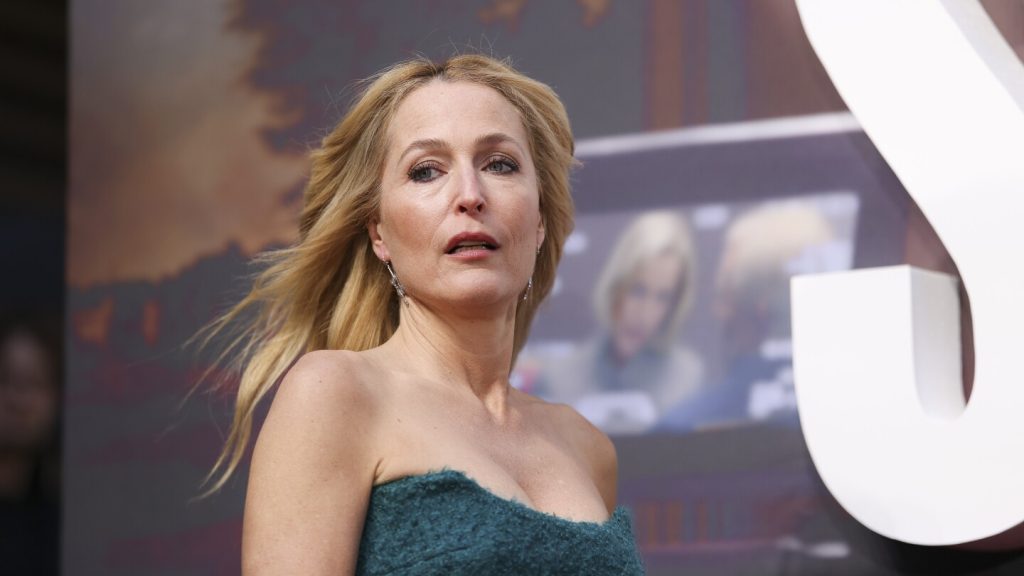The recent interactions between British royalty and the media have proven to be a volatile combination, as seen in the absence of Princess Diana following surgery, leading to online speculation further fueled by manipulated photos. The situation was somewhat diffused by a video statement from Kate discussing her cancer treatment. This serves as a stark reminder that when palace privacy intersects with public curiosity and interest, things can quickly spiral out of control. This theme is further explored in the Netflix drama “Scoop,” which delves into the disastrous interview Prince Andrew gave in response to allegations of sexual misconduct in 2019.
The drama sheds light on the complex relationship between the royal family and the media, a topic highlighted by actress Gillian Anderson, who plays journalist Emily Maitlis in the series. Anderson suggests that the dynamics between royals and the press require a reevaluation, citing Prince Harry’s battles with tabloids as well as other public revelations. The drama is based on a book by Sam McAlister, the producer who secured the controversial interview with Prince Andrew, promising the palace that “an hour of television can change everything.”
During the interview, Prince Andrew faced an intense line of questioning by Maitlis, where he denied all allegations of wrongdoing and displayed a lack of empathy towards the victims. His responses, such as an alibi involving a Pizza Express visit with his daughter, were met with skepticism by viewers. The aftermath of the interview saw Prince Andrew stepping back from public duties and eventually reaching a settlement with his accuser, Virginia Giuffre. Actor Rufus Sewell, who portrays Prince Andrew in the drama, explored the contradictions in Andrew’s character, portraying him as a man whose self-image relied on the approval of others.
The tense recreation of the interview in the drama captures the gravity of the situation, showcasing the power dynamics between the prince and the journalist. Anderson, reflecting on the experience, emphasizes the importance of independent journalism in holding authority figures like the royal family accountable. The series serves as a commentary on the implications of such high-stakes interviews and the consequences they can have on both personal reputations and public perception. The portrayal of the events surrounding the interview in “Scoop” highlights the far-reaching effects of media interactions with the royal family.
Looking ahead, another TV drama based on the same interview, “A Very Royal Scandal,” is set to release later this year, exploring the events from a different perspective. The inclusion of strong female leads in the ensemble cast of “Scoop” adds another layer of complexity to the narrative, highlighting the role of women in shaping these pivotal moments. As the drama unfolds, it raises questions about the royal family’s approach to media engagement and the lessons that can be learned from these high-profile interviews. Ultimately, the unfolding drama serves as a cautionary tale about the delicate balance between personal privacy, public scrutiny, and the power of independent journalism in the realm of British royalty.


